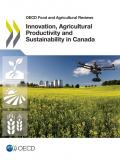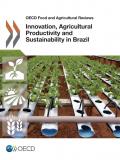This paper explores innovation in wind energy in Denmark and Germany. It examines the key features and similarities of, and differences in each country’s technological and organizational innovation paths and sheds light on their main determinants. It finds that common features have roots in similar social and political priorities and decisions at the national level. The differences, on the other hand, tend to have roots in geographical conditions and company-level technology choices.
In the end, the paper briefly addresses the increasing global interconnectedness of wind technology markets and the role of emerging new players, such as China and India.
Taking the case of Morocco, this paper aims to explore the challenges to system-building initiatives for the development of the solar energy sector. Drawing on innovation systems literature, the author examine factors that contribute to the emergence of a solar energy sector and delve into how complex governance dynamics affect such developments in Morocco. Aside from low capabilities and knowledge on solar energy technologies, a key challenge to the development of an innovation system in Morocco is the lack of a strategic approach that not only engages all relevant stakeholders but also integrates diverse objectives. The role played by the state (and its supported institutions) in the society and its participation in the economy is likely to explain why these processes are slow to prevail.


Agriculture and the agro-processing sector in Brazil have shown impressive growth over the past two decades. This has largely been driven by productivity improvements and structural adjustment resulting from broad economic reforms, as well as new technologies developed by agricultural science. Government policy and industry initiatives are increasingly focused on the sustainability of agricultural development.
The cost of existing environment-friendly technologies, such as wind turbines and SO2 scrubbers, needs to be brought down so that they can be deployed on a large scale, while fundamental research needs to advance on the frontiers of technologies such as smart grids or energy storage.
Yet, despite these pressing challenges, European companies in the electricity production sector – the largest greenhouse gas emissions emitter in Europe, with 33% of European emissions in 2012 – spend less than 1% of their turnover on innovation, against 10-15% in IT or pharmaceuticals, suggesting that the incentives to conduct Research, Development and Demonstration (RD&D) of new or enhanced low carbon technologies and their associated systems and processes might not be in place.
The objective of this policy note is to investigate whether the current level of public support to environment-friendly technologies is sufficient to allow European countries to respond to the multiple challenges posed by climate change and other environmental concerns and to discuss the policy interventions that might be needed in order to drive forward clean energy technology investments in Europe.
